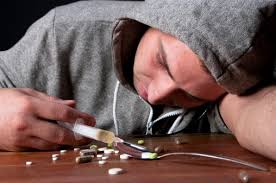Cocaine abuse ruins human health

Cocaine abuse ruins human health and all the body organs
Cocaine abuse ruins human health: Chest pain
If you are still wallowing in the wilderness of ignorance, then this article cones to you at the best time of acknowledging how cocaine abuse ruins human health in very many ways. In fact this substance affects the whole body and its most sensitive organs too. With the help of doctor Dalal Akoury MD and founder of AWAREmed Health and Wellness Resource Center, we are going to be touching on the various organs that are directly affected by cocaine abuse as follows.
One of the most common reasons for requiring emergency treatment is the enormous tightening of blood vessels, in the coronary arteries and the rest of the body. Cocaine deprives the heart of its normal blood supply, increasing the risk of a heart attack or a heart rhythm disturbance which might cause the user to drop dead suddenly. The shape of the pattern on the electrocardiogram (heart trace) can look worrying to the doctor, especially as it can change from minute to minute. But in most cases it settles down and no major harm results.
Cocaine abuse ruins human health: The heart, blood pressure/vessels
Consistent use of cocaine causes massive stresses and strains on the blood vessels in the coronary arteries and the rest of the body. This leads to a build- up of cholesterol in the walls of arteries, especially the coronary arteries. With cocaine use your blood vessels can be 30 years older than your age which can lead to unexpected heart attack.
Cocaine releases massive amounts of noradrenaline from the nerve endings, which causes blood vessels right through the body to narrow. This leads to a major surge in blood pressure. To the onlooker, the user looks pale and staring, but there may be no other outward signs of the enormous rise in blood pressure. This may still cause a heart attack. The heart aorta is very vulnerable to cocaine abuse. A surge in blood pressure following cocaine use forces the blood between the inner and outer casings of the aorta and each time the heart pumps this false passage becomes longer and more liable to block off a branch vessel or to burst, with possibility of fatal results.
Regular cocaine use can lead to a bulging weakness in the wall of a branch point of the arteries in the brain. This is often called a berry aneurysm. Eventually this aneurysm bursts, and blood pouring out of the leak is known as a subarachnoid hemorrhage. If not corrected, it can cause major damage to the brain. This damage can be permanent leading to difficulties in thought, speech, sight and movement. Cocaine powder is ‘snorted’ into the nostrils, and although it is rapidly absorbed into the bloodstream, the drug also causes the blood vessels in the lining of the nose passages to shrink. Shortly after use, the blood vessels widen again, and the red, runny stuffed-up nose of the recent user can be a telltale sign.
Cocaine abuse ruins human health: Skin
During treatment, some people may experience some unfriendly crawling feelings beneath the skin as they are withdrawing from cocaine. They may describe cocaine bugs as biting, creeping, burning or itching, and may scratch their skin until it bleeds. Although this sensation can be treated to some extent by tranquillizer type drugs, in most cases the user has to wait until it settles down and goes away of its own accord.
Finally cocaine is not any drug you would want to flow in your system. It is highly addictive and life threatening. If you are struggling with this drug, you may have noticed that from this article, very vital organs of the body are all affected by this drug. Your health cannot be compared with anything. You must make a U turn to redeem your life back. Doctor Dalal Akoury will help in every step of the way. All you need to do is to schedule for an appointment with her today.
http://www.integrativeaddictionconference.com/wp-admin






